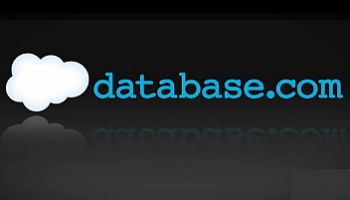Salesforce.com has used its annual Dreamforce conference to unveil Database.com, a standalone cloud database for IT pros creating applications. The company claims that developers for nearly any device and platform will be able to use Database.com’s features, even for applications using Amazon EC2 and other non-Salesforce cloud platforms.
“We see cloud databases as a massive market opportunity that will power the shift to enterprise applications that are natively cloud, mobile and social,” Marc Benioff, Salesforce’s chairman and CEO, wrote in a statement. “For the first time, we are making Database.com, the database that is proven and trusted by our 87,000 customers, available as an open, standalone service to accelerate the creation of these new apps.”
Relational Cloud Database
 In addition to file storage and standard Web-services APIs, Database.com offers a relational data store for tables, relationships, enterprise search, and a query language. As with Salesforce.com’s other offerings, one of the selling points of the online database is its automatic upgrading and backup capability.
In addition to file storage and standard Web-services APIs, Database.com offers a relational data store for tables, relationships, enterprise search, and a query language. As with Salesforce.com’s other offerings, one of the selling points of the online database is its automatic upgrading and backup capability.
Database.com recognises a variety of developer languages, including Java, C#, Ruby and PHP. It also supports running apps on platforms such as Salesforce.com’s own Force.com, VMforce, Amazon EC2, Google AppEngine, Microsoft Azure and Heroku. Security certifications include ISO 27001, SAS 70 Type II, and SysTrust.
With the new product, Salesforce potentially heightens competition not only with Oracle, with its range of database offerings, but also with Microsoft and its SQL Azure, a cloud-database service.
For some time, Benioff has used Salesforce to push a vision of the cloud – and by extension, enterprise applications – as an increasingly mobile-centric, social-networking-driven platform. In a number of speeches, he has referred to this shifting paradigm as “Cloud 2”, while offering up products such as Chatter 2, which allows employees to post comments and share files in a Facebook-style environment, as the best way for companies to take advantage of it.
Salesforce’s embrace of the cloud and software as a service (SaaS) has brought it into tighter competition with Oracle, where Benioff used to be an executive. During October’s Gartner Symposium/ITxpo 2010, he took a swipe at Oracle’s Exalogic Elastic Compute Cloud. “It’s just another computer and, when Larry [Ellison, Oracle CEO] said it starts at a million dollars, I went: Is it democratic? Is it energy efficient? Is it good for the environment, do you have to upgrade it and update it? Because if it isn’t any of those things, it isn’t cloud computing.”
In the meantime, Microsoft has taken an increasingly aggressive stance with Salesforce. In An Open Letter to Salesforce.com Customers the software giant dangles a $200 (£127)-per-user rebate for any organisation that switches from Salesforce to Microsoft Dynamics CRM Online. The two companies also traded patent-infringement lawsuits earlier this year.




